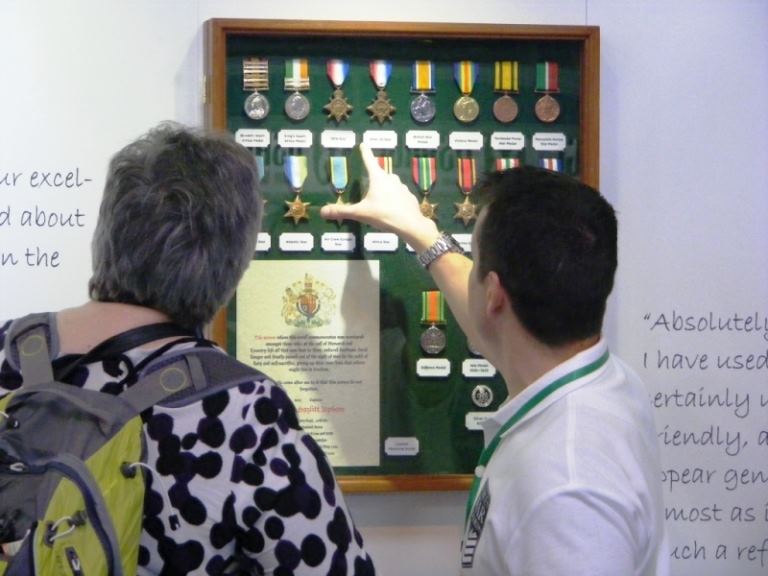Military Genealogist Simon Pearce provides an insight into seven medal record collections to help you research your military ancestors
Perhaps your ancestor’s medals hang on your wall or are safely stored in your family history collection. Maybe you proudly display your own medals from your military service. Medals are fantastic family heirlooms to cherish, but how can they help us with our research? Medal records can be a vital source for family historians, offering useful military and genealogical information. The details held within, like an army number, enlistment date, or unit, can help you target other military records, such as service records, war diaries or a casualty database. Whether you’re at the beginning of your research journey or a seasoned pro, medal records are always of great interest and value.
We’ve compiled a list of seven medal collections available on Forces War Records to help you with your research.
Silver War Badge List 1914-1918
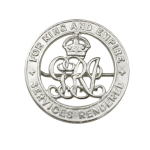
Researching your ancestors during WWI? The Silver War Badge (SWB) is a great resource to have at your fingertips. Issued to service personnel who were honourably discharged due to wounds or sickness, the clues held in this collection can be of real significance. The value of this collection is even greater if your ancestor’s service record was destroyed (around 60% of WWI British Army service records were destroyed or badly damaged during a German bombing raid in September 1940). In addition to the customary basic military details, the collection indicates when your ancestor enlisted and when they were discharged. In the absence of a service record, there are very few sources outside of the SWB lists that will provide you with a soldier’s exact date of enlistment. Both dates allow you to establish and start and end point for your ancestor’s military service. Entries in this collection will also note the person’s cause of discharge, with the words’ wounds’ or ‘sickness’ regularly featuring. The presence of these terms, while also noting if they served overseas, adds further context to your ancestor’s military story, allowing you to understand the cause behind the cessation of their wartime service. Some entries also include the service person’s age; this is a crucial piece of the puzzle if you are researching someone with a common name or if you are unsure if the record you are viewing relates to your ancestor. If you know the person’s age or date of birth, the inclusion of their age on the SWB lists allows you to make a positive connection or rule the record out. Search the Silver War Badge records.
Royal Navy Medal Rolls 1793-1955
The Royal Navy has played a significant role in the defence of Britain and in armed conflicts for centuries. Family stories or a photograph in your collection may suggest that an ancestor served with the Royal Navy or Royal Marines. Perhaps you are unaware of an ancestor’s connection to the navy or marines, and their story is waiting to be discovered. This collection covers a wide range of awards issued to members of the navy or marines for service during conflicts or particular actions. You can find entries for personnel who served in Canada between 1866 and 1871, during what was known as the ‘Fenian Raids‘. Or perhaps your ancestor was awarded a medal for service during the Arctic Expedition of 1875-1876. Medals awarded for service during WWI to certain parts of the navy are also documented in this diverse collection, in addition to the Naval General Service Medal covering 1909-1920 (not awarded for service during WWI). Entries in this collection vary, but you may encounter a rank or rating, a number, a ship served on, and the type of award. These details will help you to search other naval collections, such as service records, casualty records or ship’s logs. Since the navy did not maintain service records for ratings (non-officers) prior to 1853, the collection is of great importance to researchers of this period.
Royal Red Cross Decoration 1883-1994
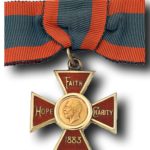
Perhaps your ancestor served as a nurse with one of the various nursing organisations, such as the Queen Alexandra’s Imperial Military Nursing Service, the Territorial Force Nursing Service, the First Aid Nursing Yeomanry or the Red Cross. If so, your ancestor may have been awarded the Royal Red Cross. Available in two classes, First Class and Second Class, the medal was conferred to nurses who tended to the military’s sick and wounded. The collection may contain the nurse’s name, rank, unit, the date the award was published in the London Gazette and the theatre of the award. Entries sometimes include a brief description of the circumstance of the award, such as: ‘in recognition of their valuable services with the Armies in the Field.’ Not only does this collection allow you to explore a prestigious award granted to your nursing ancestor, but the clues held within can point you in the direction of other nursing records: service records, war diaries or civilian nursing collections. Search the Royal Red Cross Decoration collection.
The Boer war medals to British and Commonwealth forces 1899-1902
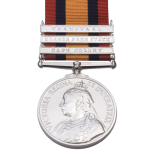
The Second Boer War of 1899-1902 pitted the British Empire against the Boer Republics in a colonial war which descended into bitter guerilla fighting. The British Empire was able to commit over 400,000 soldiers to the conflict, with victory coming at a heavy cost. In addition to the regular soldiers of the British Army, the government was also able to raise a number of volunteers for service during the war. You may be in possession of your ancestor’s service record, which often details the medals they were entitled to; however, it’s always worth consulting medal records for any additional clues. As mentioned above, a large number of WWI service records were destroyed during WWII; this includes Boer War veterans who went on to serve during WWI. If you find yourself in that position, our Boer War medal collection may prove to be a crucial piece of the puzzle. Information in this database includes name, rank, number, regiment, battalion and the clasps received. The clues found in this collection can help with research into your ancestor’s military service before, during and after the Boer War. Search our Second Boer War, Medals to British and Commonwealth Forces, 1899-1902 collection. Medals in this collection include the Queen’s South Africa Medal and the King’s South Africa Medal.
General Service Medal Roll 1918-1961
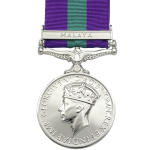
Many of us have ancestors who served in the armed forces following the end of WWI. Although there are records available to help you learn more about their experiences with the forces, this can be challenging if you do not have a service record. If you suspect your ancestor served after WWI, but you lack details, the General Service Medal roll may be a good starting point. The General Service Medal was a campaign medal awarded to men and women of the British Army and the Royal Air Force. The medal was not awarded for service during WWII. Recipients were awarded the medal for a range of 20th-century campaigns, conflicts and service engagements, including: service in Iraq between 1919 and 1920, Palestine between 1936 and 1939, for post-war minesweeping operations, service during the Berlin airlift or in Malaya between 1948 and 1960. Aside from providing an insight into the campaign medals your ancestor was awarded, the clues within can kickstart your research journey, particularly if you are struggling to pin down information about your ancestor. Information such as battalion and number will help you with your service record application via the Ministry of Defence (MOD) and can assist you when narrowing down results in other military collections. You may not be aware that your ancestor enlisted before the start of WWII or carried on serving after; discovering this information through medal collections helps you to add further, rich details to the timeline of their military service. Search the General Service Medal 1918 collection (covering 1918-1961). Remember: the MOD holds post-WWI service records for the armed forces. See the MOD website for the dates covered and to access the relevant paperwork.
King George VI 1937 Coronation Medal Roll
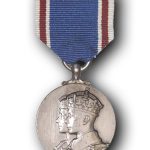
Your ancestor could have been one of the 90,000 recipients of the King George VI Coronation Medal. The medal was created in commemoration of King George VI and Queen Elizabeth’s coronation on 12 May 1937 and was awarded to civilians, in addition to members of the military throughout the Commonwealth. If your ancestor was awarded the medal in a military capacity in 1937, it is possible they continued to serve with the armed forces during WWII. The information in these medal rolls may provide the clues required to research your ancestor’s WWII military career. Search the King George VI Coronation Medal collection.
Korea Medal
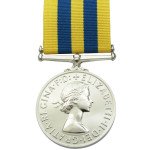
Perhaps your ancestor was one of the 60,000 British combat troops who served during the Korean War, either as a regular member of the British armed forces or as part of their National Service. The Korea Medal was issued to British and Commonwealth forces for service on the Korean Peninsula between 1950 and 1953. Positive entries in this record set could help you locate the individual’s service record or assist with searches of other collections such as our Korea – British Army Prisoners of War collection. Find your ancestors in the Korea Medal collection. Finally, you can apply for your own, or an ancestor’s medals if you are the next of kin, via the Ministry of Defence, with the exception of WWI and pre-WWI medals.
There are many collections available on Forces War Records to help you learn more about your military ancestors. You can view all our records via the Browse tab, with options available to narrow the collections by country, theatre of war or service branch.
We’re always here for you if you need help or advice with your research. Why not follow us on Facebook and submit a question to one of our monthly military genealogy Q&As? You can also send a query via the Document Expert section of our website.

